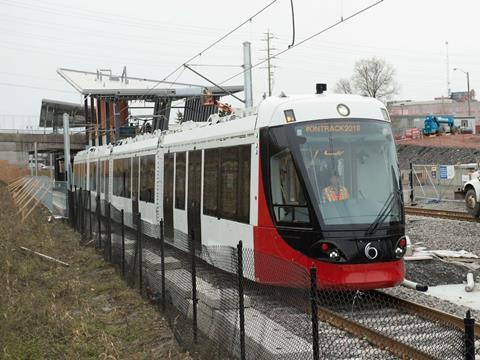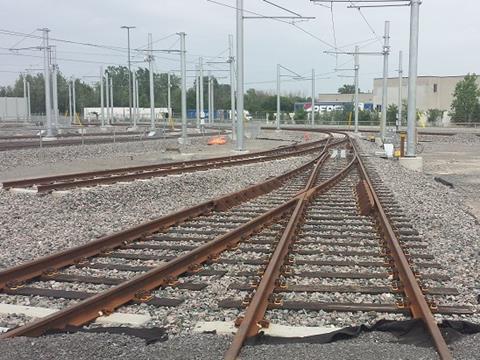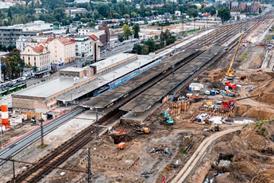
CANADA: There were persistent failures in leadership and communication during development of Ottawa’s light rail project, with the city and PPP concessionaire Rideau Transit Group losing sight of the public interest, according to a public inquiry report which makes 103 recommendations to fix problems and ensure they do not reoccur on other major infrastructure projects.
The 12·5 km Confederation Line, also known as O-Train Line 1, was inaugurated in September 2019, but a range of issues including breakdowns and derailments led to a temporary shutdown.
In December 2021 the government of Ontario appointed a commission led by provincial court of appeal judge William Hourigan to conduct a public inquiry. Its mandate was to find out ‘what happened and why, and how to avoid similar problems in the future’, Hourigan explained when the final report was published on November 30.
The commission identified numerous issues, with the executive summary alone running to 28 pages. These included the city choosing unproven rolling stock technology that ‘strained the limits of what an LRT system could do’ as at the time there were no low-floor LRVs operating with CBTC in a similar climate. RTG did not co-ordinate its sub-contractors and failed to ensure the integration of various systems. An adversarial relationship developed between the city and concessionaire, the line was rushed into service before it was ready, and maintenance was inadequate.
The report says two things ‘stand out as egregious violations of the public trust’. The first was the conduct of RTG and its construction entity Ottawa Light Rail Transit Constructors in providing completion dates ‘that they knew were entirely unrealistic’ as part of a ‘misconceived scheme to increase commercial pressure on the city’.
The second was the conduct of city officials and the then mayor in trying to ‘control the narrative by the non-disclosure of vital information or outright misrepresentation’. This ‘prevented councillors from fulfilling their statutory duties to the people of Ottawa’.
Recommendations

Hourigan said ‘more than three years after opening some of the LRT’s problems still have not been fixed’, adding that ‘while relations between the city and RTG have improved, both need to do more work to ensure the public interest is at the core of everything they do’.
The commission’s recommendations include:
- an independent monitor should keep Ottawa City Council or the Transit Commission informed about ongoing corrective measures;
- governments and procurement agencies should examine whether to use a PPP or another model for complex infrastructure projects;
- collaboration and the public interest should be at the heart of the relationship between the public entity and private sector partners;
- systems integration must be prioritised from the design phase;
- safety requirements should be designed and built in from the outset to avoid expensive retroactive changes;
- an independent safety auditor should be engaged at an early stage;
- reliability and safety issues must be honestly identified and communicated, with legal protection for whistleblowers;
- testing requirements should be detailed in the relevant contracts and used as the basis for any performance scoring;
- there should be timely and proper responses to maintenance and operation problems by all parties once they arise;
- before opening there should be extensive running under operational conditions.
Responses
Responding to the report, the RTG consortium of ACS Infrastructure Canada, EllisDon and SNC-Lavalin said ‘we acknowledge that all parties, including RTG and its subcontractors, have work to do to restore the public’s confidence in the city’s light rail system’.
The consortium said that during the inquiry it had ‘listened, engaged in, and taken this process very seriously’; it now looked forward to working with the mayor, new city council and city staff to address the issues raised and ‘deliver on our shared goal of providing the people of Ottawa with a safe, reliable transit system’.
Former Mayor Jim Watson, who did not stand for re-election in October, said he took ‘full responsibility for the project’s shortcomings’.
He emphasised that ‘since we started planning the LRT system in 2010, my goal was always to ensure that the City of Ottawa delivered a safe and reliable LRT system. Throughout the years, I have never veered from this objective. That said, the system we purchased did not meet our expectations, and for that I apologise wholeheartedly to the residents of Ottawa and to our transit users in particular.’
Watson insisted that ‘despite the early implementation challenges, I believe that Council made the right decision in unanimously approving Stage 1 LRT, given the long-term transit, economic and environmental benefits’.

















